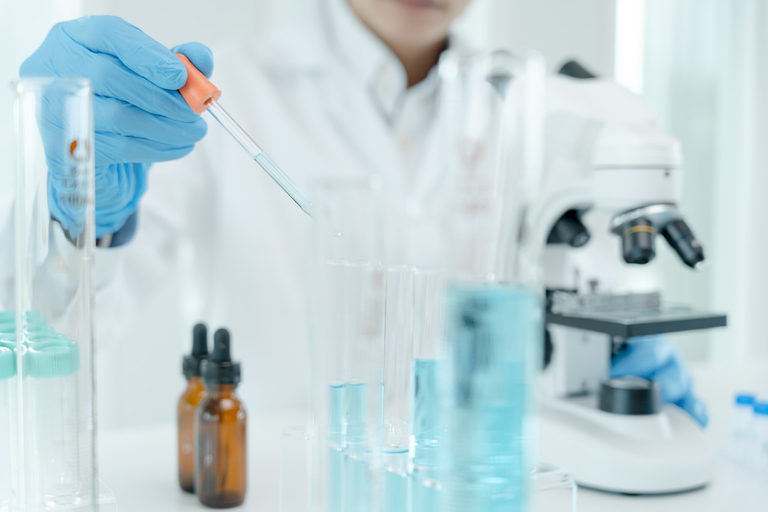Research into Ageing and Longevity

Time's intangible threads shape the grand scheme of life and leave their imprint on everything that moves. The allure of seemingly eternal youth is what draws us to the subject of ageing. What if we could decode this intricate process, discover the secret to eternal life, and alter the very nature of time itself? The field of gerontology holds the key to a future when people can live long, fulfilling lives without suffering.
Scientists have embarked on a serious mission to discover the nature of ageing as the years pass. Molecular biology, genetics, and epigenetics are being utilised. The more we learn, the closer we get to understanding how our cellular clocks function. The biology of ageing is a symphony of subtleties that need to be figured out, from the delicate dance of telomeres, which are the guardians of cellular health but are hard to discover, to the complicated interplay between DNA damage and repair.
Although genetics play a role in ageing, they are not the only factor. Things like how individuals live end up shaping the sands of time. Everything about the intricate process of ageing is affected by the decisions we make and the habits we form, from the food we eat to the frequency with which we engage in physical activity. As we explore the myriad possibilities, we find that our genes and our environments work together to build a picture of strength and optimism, one in which we have the power to shape our own destinies and make them healthier and longer.
Scientific advancements have brought us to the cusp of a new era in which the effects of ageing can be modified. The development of anti-ageing treatments has raised the possibility that we can alter the passage of time. The use of senolytics, which attempt to eliminate senescent cells, is on the cusp of feasibility, whereas telomerase activation suggests rejuvenation on the cellular level. Metabolic treatments take us into new territory because of their potential to alter the nature of ageing.
As we embark on this journey of discovery, it is important to remember that the pursuit of immortality is a collaborative endeavour on the part of all of us. A future where longer lifespans, purpose, meaning, and a zest for life may coexist peacefully is within reach if scientific minds, medical advances, and the tenacious spirit of human creativity work together. It is not simply the length of our lives but the moments we cherish, the people we touch, and the legacy we leave that define us.
So, let's go on this exploration of ageing and longevity with an insatiable curiosity about how time works and the mysteries that lie dormant in our cells. By embracing the science that promises us healthy, active lives that last much longer than we can anticipate, we can work together to alter the perception of ageing.
DNA damage and repair, cellular senescence, and other aspects of the study of ageing
Senescence of Cells:
At the core of ageing is cellular senescence, which occurs when the cell cycle ends in an irreversible manner. Senescent cells are no longer capable of normal growth and function. Telomere shortening is a major contributor to cellular ageing. Telomeres are DNA repeating strands that cap off the ends of chromosomes for protection. Telomeres shorten with each cell division until they reach a length where further reduction is impossible. We refer to this as cellular senescence.
Although telomeres shorten with age, there are a variety of factors that can hasten this process. Telomeres can shorten and hasten cell ageing in response to chronic oxidative stress, exposure to hazardous external elements like radiation or pollution, and genetic predispositions.
There are two aspects of ageing that involve cellular senescence. On the one hand, it prevents tumours from expanding uncontrollably by halting the proliferation of damaged or potentially harmful cells. However, over time, a surplus of senescent cells might compromise tissue function and overall health. The senescence-associated secretory phenotype (SASP) refers to a collection of chemicals and other compounds that senescent cells secrete. Chronic inflammation, disruption of tissue homeostasis, and accelerated ageing-related disease risk are all possible outcomes of SASP.
DNA Breaks and Repairs:
Another crucial aspect of ageing is the accumulation of DNA damage during an organism's lifespan. DNA, the genetic code, is vulnerable to environmental stressors such as reactive oxygen species, radiation, and toxins. Damage to DNA can lead to structural errors and mutations, threatening the integrity of the genome.
Thankfully, the body has elaborate mechanisms for repairing DNA damage. DNA repair systems, such as base excision repair, nucleotide excision repair, and double-strand break repair, work tirelessly to locate and repair DNA abnormalities. However, these repair mechanisms might decline with age, leaving behind DNA damage that was either not repaired or was repaired incorrectly.
Persistent DNA damage can be harmful because it disrupts vital cellular processes, compromises genome security, and causes tissue and organ dysfunction. Cancer and other age-related disorders may be more likely to develop in people with DNA repair issues.
The process of ageing can be better understood if we learn how DNA damage and repair interact with one another. Research is ongoing to determine what factors influence DNA repair and how cells might better repair themselves to mitigate the effects of DNA damage.
The interplay between cellular senescence and DNA damage is a central puzzle in the study of ageing's complex biology. These fundamentals help us better understand the mechanisms underlying age-related tissue dysfunction and pave the way for novel approaches to promoting healthy ageing and combating age-related illnesses.
Genetic and Epigenetic Influences on Longevity: A Symphony
Everyone ages, but some of us take the process more gracefully than others. How we age is profoundly affected by the marvellous blueprint encoded in our DNA, sometimes known as genetics. In addition, the emerging study of epigenetics has revealed the extent to which our environment and way of life shape our genetic makeup. This further complicates the question of how to extend one's life span.
Anti-Ageing Genes
Many different parts of our DNA have been found to be associated with longevity and resistance to age-related disorders. These so-called "longevity genes" orchestrate a complex network of molecular events that accelerates or slows the ageing of cells and organisms.
The FOXO3 gene is just one example of a set of genes that have been related to increased longevity across species. FOXO3 regulates numerous cellular functions, including DNA repair, free radical defence, and stress resistance. When activated, it has been associated with enhanced well-being and increased longevity.
The SIRT1 gene also has a significant role. It belongs to the family of proteins known as sirtuins, which regulate essential functions like DNA repair, energy metabolism, and the body's reaction to stress. Because SIRT1 is a mediator of the effects of calorie restriction, which is known to extend lifespan in many animals, activating SIRT1 has been related to longer life spans in animal models.
Through studying longevity genes, scientists continually discover new genes and mechanisms that influence how we age. Researchers are searching for these genetic elements in an effort to better understand how ageing occurs and develop targeted therapies that would allow individuals to live longer, healthier lives.
Epigenome modifications
The genetic code isn't the only thing that dictates how our bodies and cells function; there's an additional layer of control that directs gene activation. Chemical adjustments to DNA and the proteins that interact with it are known as epigenetic modifications. These modifications can affect gene function without altering the underlying DNA coding.
Environmental factors, lifestyle decisions, and the natural ageing process are just a few of the many potential triggers for epigenetic changes that can occur at any time. These modifications can significantly alter gene expression by silencing or activating certain genes.
The numerous epigenetic changes that take place over time have a significant impact on the way we age. They can hasten the decline of certain cellular functions and increase susceptibility to age-related illnesses. However, because epigenetic changes are perpetually taking place, there are also techniques to halt or alter them, potentially ameliorating the negative impacts of ageing.
Recent advances in the field of epigenetics have revealed the potential for epigenetic treatments to aid in healthy ageing. There is hope that DNA methylation editing and medications that target histone modifications can alter gene expression and reverse some of the epigenetic changes that occur with age.
Scientists are interested in understanding the intricate relationship between DNA and the epigenome in order to develop methods for extending the human lifespan. A fresh perspective on healthy ageing is possible if we learn how our genes, the environment, and epigenetic alterations all interact with one another. This opens the door to individualised treatments that can boost our health as we age.
The interplay between genetic and epigenetic influences is a beautiful symphony that hints at a future in which our genes will do more than just observe our health and destiny.
Elements of a Healthy Lifestyle: Protecting Your Youthful Spark
Our lifestyle choices have a significant impact on us as we go through the intricate process of ageing. Living circumstances have the potential to alter us and provide us with the opportunity to shape our futures and live full, colourful lives beyond the constraints of our genes and the nuanced symphony of epigenetic changes.
Calorie restriction and dietary regimen:
The food we eat not only fuels our bodies but also greatly influences how we age. Oxidative damage, inflammation, and accelerated ageing can all be avoided with a good diet, but the opposite is true.
The Mediterranean diet, which emphasises fresh produce, whole grains, and healthy fats, has been associated with a reduced risk of age-related diseases and an increased life expectancy. Furthermore, eating less (without being underweight) is known to extend the lives of many animals, including monkeys.
According to recent research, our diets can also determine how quickly we age. Not counting the quantity and quality of food we consume. Intermittent fasting, which comprises cycles of fasting and resuming normal eating at specific times, may improve cellular repair, metabolic health, and longevity.
Physical activity, especially exercise
Regular physical activity is essential for good ageing. Exercise has important benefits for a number of bodily processes that contribute to ageing, including improving heart health and muscle strength.
Exercising boosts growth factor production, enhances mitochondrial function, promotes learning, and fortifies the immune system. These interventions may slow or prevent the age-related decline in strength, cognitive ability, and vitality.
Regular exercise also reduces the risk of acquiring chronic conditions like cardiovascular disease, diabetes, and some forms of cancer. Maintaining a sound state of mind and body includes taking care of your bones and joints.
Everyone's exercise routine should be tailored to their individual preferences and abilities. We can maintain our youthful vitality and age gracefully by engaging in regular physical activity, such as brisk walking, weight training, swimming, or yoga.
Eating healthily, decreasing calories when it makes sense, and working out consistently provide us the tools to establish a foundation for long-term health and well-being. These ways of life have the potential to improve the quality of our lives and extend our lifespan.
Innovative Anti-Ageing Strategies

Source Pixabay
There is a glimmer of hope on the horizon, thanks to the ever-evolving world of science, that we may one day be able to break the constraints of ageing. Because they seem to defy common sense, recent advances in anti-ageing medicine have piqued our interest. A new era has begun, with the goal of living longer and healthier taking centre stage as scientists gain a deeper understanding of the complex processes that drive ageing.
For centuries, it has been accepted wisdom that everyone wishes they could maintain their current state of youth and health indefinitely. Recent advances in biological research and state-of-the-art technologies have put us on the cusp of game-changing insights into the mechanisms of ageing.
The Senolytics
Senolytics is a promising area of research into anti-ageing treatments. The process seeks to identify and eliminate senescent cells, which play a role in tissue malfunction and age-related disorders because they have stopped dividing in a way that can't be reversed. These "senolytic" treatments aim to eliminate these potentially dangerous cells and restore youthful appearance and function to aged tissues.
In animal studies, administration of senolytic drugs resulted in improved health, organ function, and longevity. Excitingly, clinical trials of senolytics are currently being conducted to determine their safety and efficacy for human use. This provides a preview of the potential effects of these therapies on the ageing process.
Initiating Telomerase Activation:
Another area that needs investigation is telomerase activity, which works to prolong the telomeres (protective caps) at the ends of our chromosomes. Scientists interested in discovering methods of anti-ageing have focused on telomerase, an enzyme that maintains normal telomere length.
Researchers have found that activating telomerase can reverse some of the molecular changes that occur with ageing, speed up tissue healing, and reduce the rate at which cells reach senescence. The promising possibility of lengthening telomeres and renewing ageing cells has sparked hope for a future in which cellular vitality does not wane, despite the fact that research into telomerase-based therapeutics is still in its infancy.
Metabolic Interventions
In the quest to find anti-ageing solutions, the metabolic network that fuels our bodies has emerged as a promising new front. It may be possible to increase cellular energy output, decrease oxidative stress, and enhance general health by altering metabolic pathways with tools like calorie restriction mimetics and mitochondrial-targeted medicines.
Preliminary research suggests these metabolic therapies have anti-ageing benefits, which would improve health and possibly increase lifespan. Researchers are interested in discovering how to restore a youthful state of biological equilibrium.
Let's maintain a cautiously positive outlook as we embark on this journey into the world of new anti-ageing treatments, knowing that the road ahead is paved with unknowns and hurdles.
With the advancement of science, the notion that ageing is a fixed force is losing ground, making way for a future in which the boundaries of ageing are less certain. With each breakthrough, we get closer to a society where good health and abundant energy are not just nice-to-haves but universally attainable aspirations.

Pixabay
Let's keep our wits about us and our sense of humour while we discuss science. After all, laughter is the best anti-ageing medicine there is.
So, here's the deal: researchers are looking for ways to maintain youth indefinitely, but it's also crucial to appreciate the present moment. Ageing is a natural element of the human experience and fundamental to our unique identities. You've had a full and happy life, as seen by the wrinkles and wisdom threads of silver.
Keep in mind that there is more at stake than merely preventing wrinkles and sagging skin in the quest for anti-ageing solutions. It's also about taking care of ourselves emotionally, mentally, and physically as we flow through life. It's not about how long we live but rather how much we enjoy it; therefore, we should laugh, love, and take advantage of every moment.
Let's toast to a future where medical research and a big belly laugh go hand in hand in the pursuit of a long and healthy life as we say our goodbyes. Here's to a lifetime of laughter, romance, and scientific discovery!
Recognise that age is just a number and that the secret to eternal youth lies not in scientific research but in appreciating the little things life has to offer. Keep your spirits up, pals, and embrace the humour and wisdom that come with age.
References
- “A Conversation on Aging Research.” A Conversation on Aging Research | Harvard Medicine Magazine, 1 Jan. 2021, magazine.hms.harvard.edu/articles/conversation-aging-research.
- ALICE PARK . “Scientists Have Reached a Key Milestone in Learning How to Reverse Aging.” Time, time.com/6246864/reverse-aging-scientists-discover-milestone. Accessed 27 May 2023.
- “Research Into Ageing and Frailty - PubMed.” PubMed, 1 July 2021, https://doi.org/10.7861/fhj.2021-0088.
- “Anti-aging Research: ‘Prime Time for an Impact on the Globe.’” Harvard Gazette, 8 Mar. 2019, news.harvard.edu/gazette/story/2019/03/anti-aging-research-prime-time-for-an-impact-on-the-globe.
- “Longevity and Aging - PubMed.” PubMed, 1 Jan. 2013, https://doi.org/10.12703/P5-5.
- Moger-Reischer, Roy Z., and Jay T. Lennon. “Microbial Ageing and Longevity - Nature Reviews Microbiology.” Nature, 18 Sept. 2019, https://doi.org/10.1038/s41579-019-0253-y.
- “Unraveling the Mysteries of Aging.” Unraveling the Mysteries of Aging | Harvard Medical School, 23 Mar. 2017, hms.harvard.edu/news/unraveling-mysteries-aging.
- Kaeberlein, Matt. “Longevity and Aging.” PubMed Central (PMC), 4 Mar. 2013, https://doi.org/10.12703/P5-5.
- “Seeking the Fountain of Youth? 10 Tips to Reverse Aging.” Psychology Today, 1 May 2023, www.psychologytoday.com/us/blog/changepower/201902/seeking-the-fountain-youth-10-tips-reverse-aging.
- “Groudbreaking Study Accidentally Reveals Biological Age May Be Reversible.” Fox News, www.foxnews.com/health/groudbreaking-study-accidentally-reveals-biological-age-may-be-reversible.
- “Top Breakthroughs in Aging Research - American Federation for Aging Research.” American Federation for Aging Research, www.afar.org/top-breakthroughs-in-aging.
- Founty. “Newest Breakthrough in Anti-aging Discovered.” Newest Breakthrough in Anti-aging Discovered, www.prnewswire.com/news-releases/newest-breakthrough-in-anti-aging-discovered-301278571.html.


The human system can be an intricate maze to decipher but scientist and other individuals are making great strides in cracking the code to longevity and reverse aging. Living in eternal youth will be a wonderful experience. Thank you for this informative post :)
Thanks for your contribution to the STEMsocial community. Feel free to join us on discord to get to know the rest of us!
Please consider delegating to the @stemsocial account (85% of the curation rewards are returned).
You may also include @stemsocial as a beneficiary of the rewards of this post to get a stronger support.
Well written post!
I think one of the things that's holding research back is that the majority of people in the world think we're already immortal, as crazy as that sounds!
I'm talking about religious people, of course, who are the majority of the world. They don't see the need to invest in something that's already here. And the non-religious mostly don't realize that, even though they've rejected God, they haven't rejected all the values that underpin the religious worldview they grew up with. They internalize religion's death-loving or anti-life values, and this comes out in the form of silly arguments like 'But what about overpopulation?' or 'But wouldn't eternal life get boring?' etc.
Thanks so much buddy for stopping by. I really appreciate your contributions